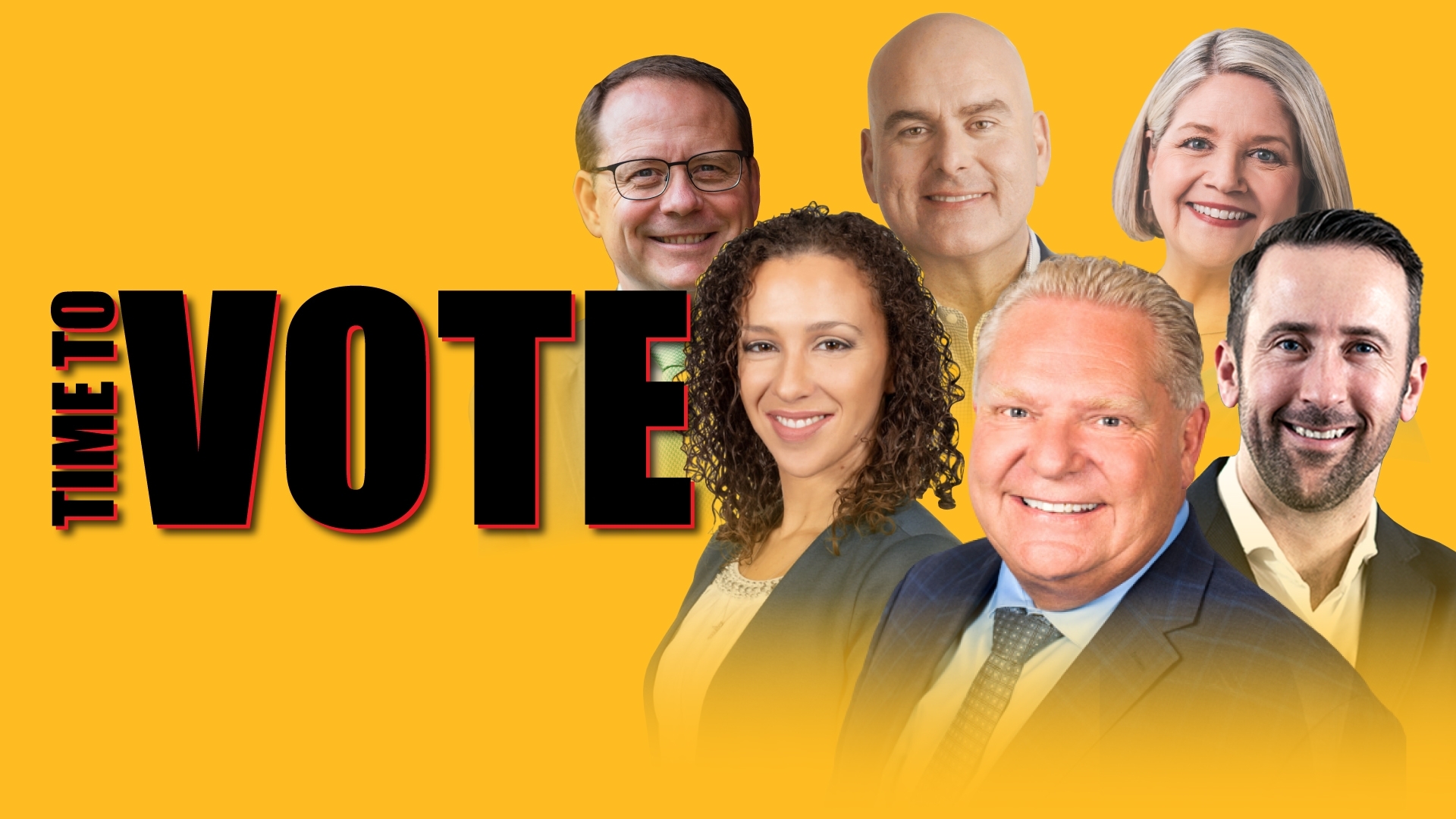on
BY SIMONE J. SMITH & PAUL JUNOR
“A brand is not action. A brand is just a brand.” Electoral Candidate Knia Singh
June 2nd, 2022, is not a day to be ignored.
We as a community have become apathetic when it comes to voting, and it is something that continues to bite us in the ass.
I have taken the time to speak with people in the community from all walks of life, and what I am hearing is disheartening. I am not sure if it is the effects of the pandemic, but people don’t seem to care anymore. People are either defaulting to a party that their parents have always voted for, voting for a brand without really understanding the policies, or have actually said that they are not going to bother voting.
I find that interesting because I also hear people complaining about the state of their communities, and it is usually by the people who have not taken the time, or done their due diligence to select a leader that suits their needs.
I have always felt strongly about the Caribbean community having their own party, separate from what is offered to us, but I don’t think we are there yet, so in the meantime we have some choices to make.
I wanted to get some perspective from someone who has delved into politics, so I gave Knia Singh a call. He is running as an independent in this election, and I thought he would be able to give us some perspective.
”What we have to realize,” Knia began, “Is that your vote is like a dollar in your pocket. If you don’t use it, it is gone on voting day.
We know the system is against us, and this is why we have to have agency. We have to think about the future of our children.”
“Knia,” I asked, “There are a lot of new parties this year, but for some reason, I am only seeing four. Why is this?”
“Media knows that any attention you give these parties is a vote for them. They control the political game.
When I ran for the Green Party, they did not get any attention, and they were the best at that time, and would have served our interest more. They were the most independent.”
“What about those people who say that giving your vote to the new parties is throwing your vote away?”
“If you give your vote to any other party, they may not get the seat, but it does show numbers. You can’t vote based on who you think is going to win. These ideologies are spread across the media and they pigeon hole voters. Vote for who you think will be your best candidate.”
“I see that you are running as an independent this year. Let the community know why you did this?”
“As an independent, you respond to the needs of your riding. I don’t support the ideologies of any of the parties. They are removing rights from Canadian people, which is alarming, they are not promoting health. They have sanctioned the removal of professionals, and have destroyed businesses. I can’t align my values with them. If every MPP was independent, we would have a much more functional democracy.”
My dialogue with Knia got me thinking, and helped me put together this article. He is right; we have to vote for who aligns with our views, our personal perspectives, but we also have to think about this in a communal sense. What have these parties done for our community in the last two years, three years, five years, or ten years?
I had a chance to speak with members of the Caribbean community, and I sent questions to the parties running in this election. I have not heard back from any of them, but when I do, I will make sure to post these answers on our social media pages. Here is a list of some of the questions below, and I would like for the community to send us any other questions that they have. After the questions, I provide a short overview of what the parties running are promising Ontarians.
Questions for our Political Leaders
Outline your party’s plan for addressing the health and safety issues that have intensified in schools since the onset of the COVID crisis, specifically within Black,
Indigenous, and racialized communities?
How will your party revise the education funding formula to ensure that school boards receive full and adequate funding to meet student needs?
What steps will your party take to ensure post-secondary education opportunities are available and accessible to all qualified students, including those from lower and middle-income families as well as those living in rural, northern, and remote communities?
How do you plan to improve the infrastructure that failed our older population so badly? What immediate measures have you taken?
What measures are you taking to identify older persons in financial distress?
Why are there places in Canada without potable water? Why are there so many water advisories? Are solutions being implemented? Why do water issues particularly challenge First Nations communities?
In the last two-three years, what have you actively done in the African Caribbean Community (Remove grants and funding that many members of the community do not have access to)?
Have you reached out to the grassroots communities, spoken to them, taken the time to hear what their needs are?
Have you reached out to children in our community? Actually spoken to young people, those who might not be seen as desirable, and heard their stories? This is important when creating policies that actually support them, nurture their stories.
Have you reached out to members of the African Caribbean community who had valid reasons for not wanting to be vaccinated? Have you taken the time to hear their point of view?
What research has your party done on the effects of vaccines on the African Caribbean community?
What is an action plan that will enable our community to become self-sufficient and not depend on hand-outs from the government?
Other than the career politicians, have you spoken to leaders in the African Caribbean community to hear what they have to say?
Have you reached out to African Caribbean News Outlets, requested to speak to them and share your policies with the people?
Now, let’s take a look at what the parties are proposing to do for Ontarians this year:
Ontario Party
We’ve seen enough of where fake conservatives, liberal elites, take us. Ontario needs us to stand up, tell the truth, and never back down.” Derek Sloan
Derek Sloan stands on his platform that no Ontario citizen can be compelled to commit an act, or communicate an idea, that directly contradicts their sincerely held religious beliefs or moral convictions deemed legal under the Criminal Code and protected by the Charter of Rights and Freedoms. He:
- Guarantees that all Ontarians, but particularly those of conservative worldview can exercise their freedom of expression to its fullest extent as allowed by law.
- Fight against anyone withholding provincial funding from any provincially subsidized organization that compels any of its members to contradict or disavow their legally protected religious beliefs or moral convictions; or discriminates against, or punishes, any of its members for their protected and legal exercise of free expression.
- Establish a separate government office specifically dedicated to guarding the free expression and conscience rights of Ontario citizens and aiding those who have experienced a breach of those rights.
Sound interesting to you; read their entire platform at https://www.ontarioparty.ca
New Blue Party
Belinda and Jim Karahalios established the New Blue Party of Ontario to offer the solutions necessary to ensure our province’s future is one of hope, opportunity, and prosperity.
The New Blue will also fight to:
- Renew political accountability
- Defund the establishment media and promote a free press
- Grow Ontario’s economy
- Provide tax relief
- Reform education
- Restore dignity and transparency in our healthcare
Visit them at https://www.newblueontario.com for more details.
The Ontario Liberal Party
The Liberal platform resulted from 25 open forums, and 500 consultations, involving over 28 000 participants who submitted 38 000 ideas involving 23 000 votes. These 7 areas are in its provincial platform:
- A Place to Grow Your Family
- A Place to Grow Older
- A Place to Grow Healthy
- A Place to Grow Economic Dignity
- A Place to Grow Up
- A Place to Grow Sustainably
- A Place to Grow Together
The full platform can be seen at www.ontario.liberal.ca.
Conservative Party of Canada
The recently released budget by the PC-led Doug Ford government on April 26th, 2022, promised infrastructure spending of $158 billion on transits, hospitals and highways.
Premier Ford’s vision for Ontario.” The 5 areas emphasized in the budget include:
- Rebuilding Ontario’s Economy
- Working for Workers
- Building Highways and Infrastructure
- Keeping Costs Down
- Plan to Stay Open
The full platform can be seen at https://www.conservative.ca/.
Green Party of Canada
“My vision is for the Ontario we all want; caring, connected, and ready for the new climate economy. Like you, I want to provide a future for my children that is full of opportunities.” Mike Schreiner (Green Party Leader)
The 6 key strategies, which are in their plan, are:
- Homes not Highway
- Mental Health is Health
- New Climate Economy
- Respect for People
- Reinvest in Health and Education
- Protect Nature
Learn more about the Green party at www.gpo.ca.
New Democratic Party
Their platform is titled, “Strong. Ready for You,” and if you are in the mood to read, they revealed a 186-page document that goes over the points below in detail:
- Homes You Can Afford
- Make Rent Affordable
- Cheaper Auto Insurance
- Affordable Child Care
- Start Fixing the Electricity Sector
- Affordable Groceries
- Protect Consumers
It can be seen at website:www.ontariondp.ca
All right everyone! That’s it. Now it is up to you. Take control of your destiny. Take control of your future. GET OUT AND VOTE!
Stay in the loop with exclusive news, stories, and insights—delivered straight to your inbox. No fluff, just real content that matters. Sign up today!
We, as humans are guaranteed certain things in life: stressors, taxes, bills and death are the first thoughts that pop to mind. It is not uncommon that many people find a hard time dealing with these daily life stressors, and at times will find themselves losing control over their lives. Simone Jennifer Smith’s great passion is using the gifts that have been given to her, to help educate her clients on how to live meaningful lives. The Hear to Help Team consists of powerfully motivated individuals, who like Simone, see that there is a need in this world; a need for real connection. As the founder and Director of Hear 2 Help, Simone leads a team that goes out into the community day to day, servicing families with their educational, legal and mental health needs.Her dedication shows in her Toronto Caribbean newspaper articles, and in her role as a host on the TCN TV Network.













